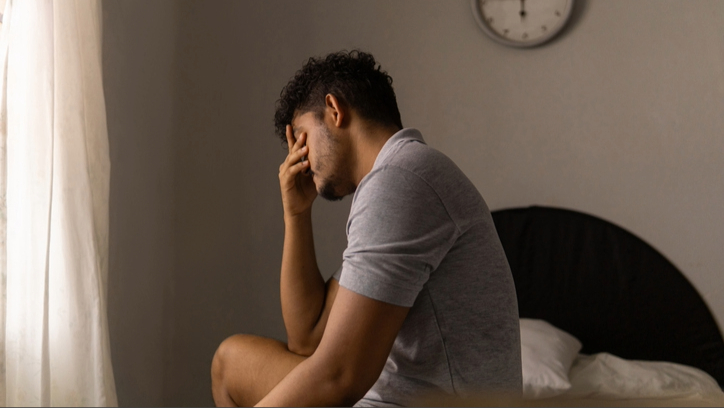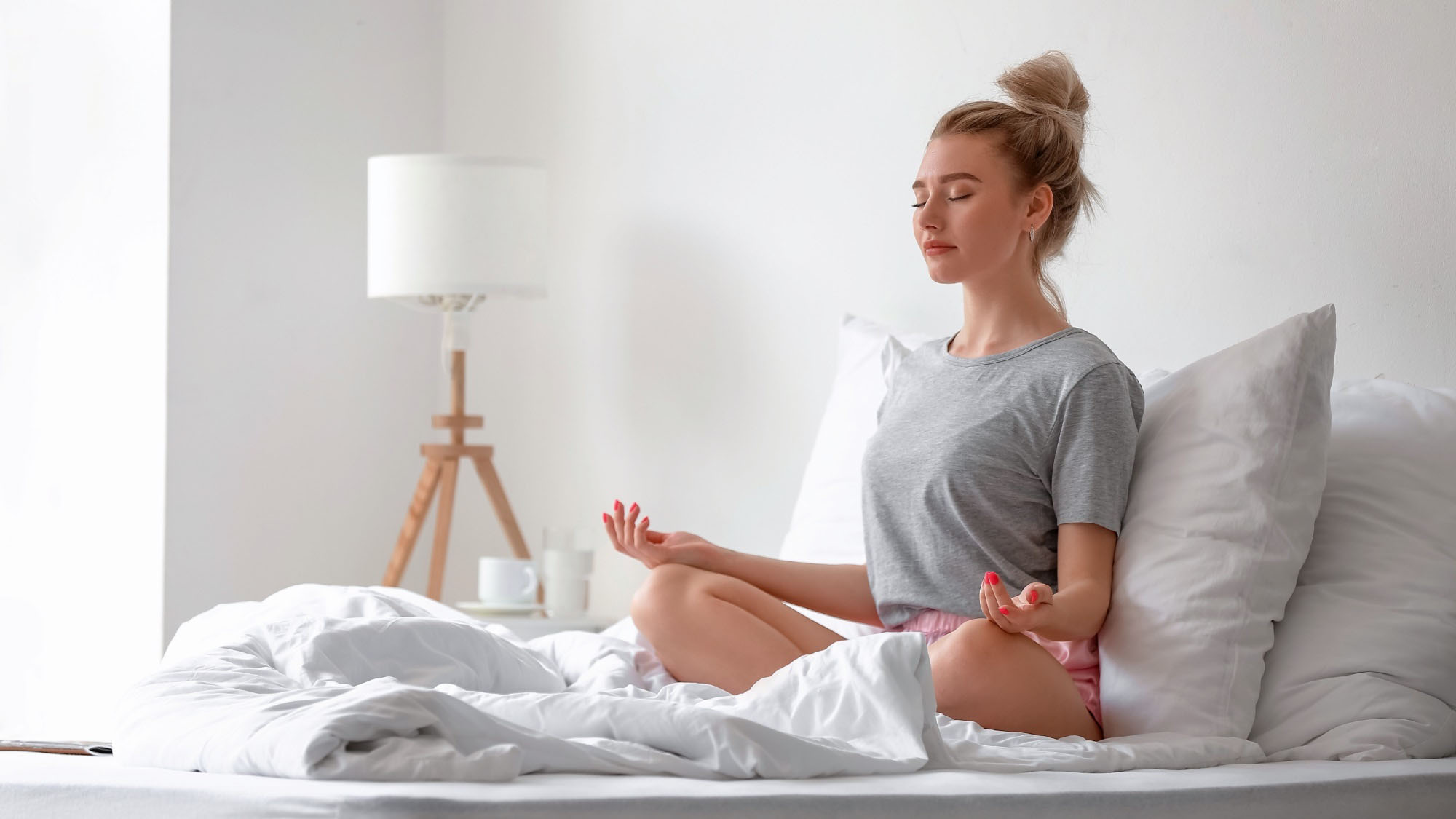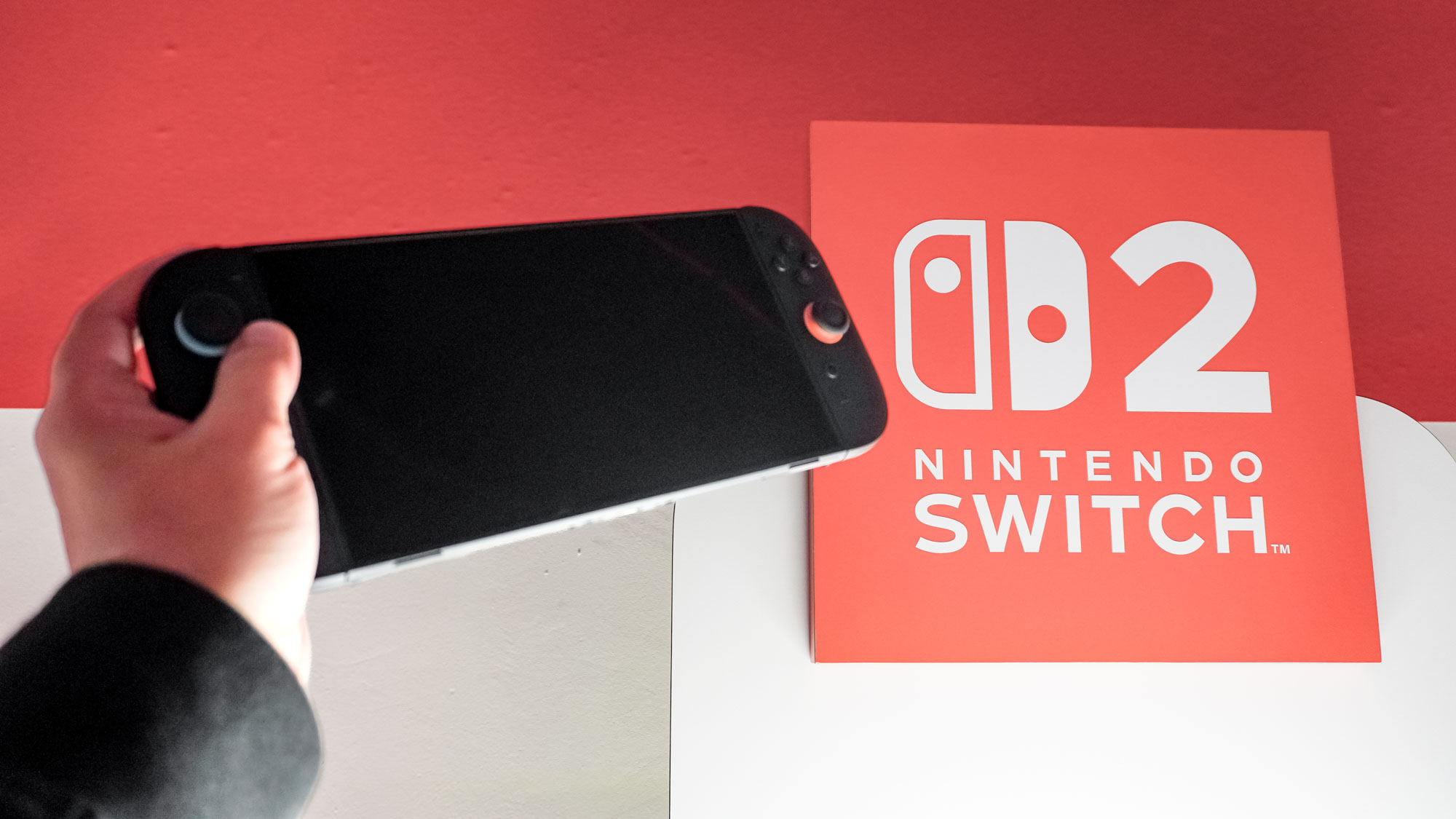How to stop waking up with a headache — advice from doctors
Stay on top of your nighttime routine and keep hydrated to reduce morning headaches

Waking up with a headache is a common experience. Whether your head is throbbing the minute you open your eyes or you slowly develop a tension headache after you wake up, headaches can wreak havoc on our daily life.
Sleeping on the best mattress for your sleep style and body type is the number one way of making sure you sleep comfortably and wake up refreshed. But if headaches are sabotaging your morning routine, you'll want to take further action. And there are many things that may be causing them.
We spoke to Dr Chelsea Perry, owner of Sleep Solutions and a Diplomate of the American Board of Dental Sleep Medicine, and Dr Shelby Harris, a clinical psychologist at Sleepopolis specializing in sleep disorders and neurology, to find out what causes morning headaches and how to stop them.
Why do people wake up with a headache?
Waking up with a headache is common. Studies show one in 13 people suffer with morning headaches. As you transition from sleep to wakefulness, different parts of your brain gradually wake up.
During this wake-up period, you experienced heightened sensitivity (hence why your eyes struggle to adjust to bright lights and a blaring alarm hurts your ears). As such, you are more susceptible to pain and tension in the head and neck can produce a headache.
Medical conditions can trigger morning head pain, but lifestyle choices and your sleep environment can also affect your tendency to wake up with a pounding head. Dr Perry explains that a tension headache is the most common morning headache and the most likely causes of these types of headaches are:
- Teeth grinding (Bruxism)
- Tension in the jaw and neck
- Alcohol or caffeine intake
- Sleep apnea
- Poor sleep quality
To stop waking up with a headache, you need to identify the root cause so you know how to tackle it. While experts say an occasional morning headache is nothing to worry about, it can become a nuisance, especially when you have places to be and responsibilities to fulfil.
Sign up to get the BEST of Tom's Guide direct to your inbox.
Get instant access to breaking news, the hottest reviews, great deals and helpful tips.
7 ways to stop waking up with a headache
If you’re struggling to pinpoint what is causing your headaches, these tips can provide some relief and help you identify the cause.
1. Ensure you stay hydrated
Dehydration reduces the fluid around the brain, which can cause headaches. Staying hydrated throughout the day is key to preventing head pain.
While we don't recommend downing pints of water close to bedtime (that's a sure fire way to keep you awake making trips to the bathroom), Dr Perry advises keeping a glass of water at your bedside to sip if you wake up thirsty during the night or drink first thing in the morning. This makes sure you're getting in that much-needed H2O first thing in the morning to eliminate head pain.

2. Limit caffeine and alcohol
As well as dehydrating you, alcohol reduces blood sugar and triggers an inflammatory response in the immune system, which contributes to headaches. The immediate effects of alcohol ware off by the morning and tend to be replaced by a thumping headache. Therefore, it is important to be mindful of alcohol consumption if you are concerned about headaches.
Similarly, drinking caffeine late in the afternoon or at night can disrupt sleep quality and make it more difficult to fall asleep, leading to morning headaches.
Another factor to consider is a caffeine withdrawal headache. Caffeine constricts the blood vessels in the head, so if you abstain from it your blood vessels will open more, letting more blood flow, leading to a pressure headache. Consider reducing your caffeine intake if you think this might be the cause.
3. Ensure your sleep environment is comfortable
How comfortable you are during the night will always affect how refreshed you feel when you wake up. Dr Harris explains that sometimes the cause of your morning headache can be as simple as sleeping in an awkward position that strains your neck.
To avoid pressure building up in your neck and shoulders, leading to a headache by the time you wake up, you'll want to make sure you're sleeping on the best pillow and most supportive mattress for your sleep type. This will ease pressure and promote spinal alignment for a comfortable, pain-free sleep each night.
4. Create a calming nighttime routine

Dr Harris says: "Preventing morning headaches starts with having good sleep habits." Where to start? With a consistent sleep schedule where you wake up and go to sleep at the same time every day. To achieve this, a relaxing nighttime routine can help.
Stress and anxiety at night can make you clench your jaw or grind your teeth, leading to head pain. But a well established nighttime routine can help you wind down and manage worrisome thoughts before hitting the hay. This routine should include a screen-free relaxing activity, a sleep-inducing drink and a clean, calming sleep space.
Dr Perry says meditating or writing down your thoughts and concerns before bedtime are great ways to alleviate stress and relax. Falling asleep feeling relaxed will improve sleep quality and minimise mental and physical tension, reducing the chance of you waking up with a headache.
5. Keep an eye for other symptoms
Sleep disorders like sleep apnea where breathing is disrupted during the night, reducing oxygen in the brain, can cause morning headaches. Dr Harris says you should be cautious if your headaches come with other symptoms like dizziness, vision changes or confusion as these could signal underlying conditions like sleep apnea or high blood pressure.
6. Look at your diet

Several studies have proven a link between diet and headaches, showing different foods can provoke and prevent headaches in different individuals. Keeping an eye on your diet and recording what you eat when you experience these headaches can help you identify any headache-inducing foods.
As a general rule, foods high in sugar and processed meats can induce headaches while foods rich in magnesium, calcium and vitamin D can lower the occurrence of headaches. Some common triggers also include food and drink that contains monosodium glutamate (MSG) or aspartame.
7. Take a breath
Breathing exercises are a great tool for alleviating headaches as they release stress and tension in the body which could be at the root of your morning headaches. Dr Harris advises: "If you suspect stress is the trigger, take a few moments to relax and reset."
When you wake up, take a deep breath, hold it for a few seconds and breath out slowly. Repeat this until you feel less tension in your mind and body. This moment of calm helps you focus your mind and eases your muscles, reducing any strain in the head.

How to ease morning headaches
To stop a morning headache ruining your day, you'll want to get rid of it fast so you can crack on with your daily plans.
Dr Harris advice? "If you wake up with a headache, start by drinking water and eating a balanced breakfast. Over-the-counter pain relievers can help, but don’t overuse them. Stretching or using a cold compress on your forehead can ease the pain too."
When to get professional advice
You should get medical help if morning headaches are severe, very regular or accompanied by other symptoms of sleep disorders or health issues.
Dr Harris advises: "Morning headaches become a concern if they happen often, get worse over time, or come with other symptoms like dizziness, vision changes, or confusion. These could signal an underlying condition like sleep apnea or high blood pressure. If this sounds familiar, it’s time to talk to your doctor."
Dr Perry adds you should also consult your dentist to see if you have temporomandibular joint disorder (TMJ), a condition that affects the joints and muscles around the jaw, causing Bruxism.

Eve is a PPA-accredited journalist with an MA in Magazine Journalism from Cardiff University. She is a Sleep Staff Writer at Tom’s Guide and has four years’ experience writing health features and news. She is particularly interested in the relationship between good sleep and overall health. At Tom’s Guide Eve is responsible for coverage and reviews of sleep tech and is our smart and cooling mattress specialist, focussing on brands such as Eight Sleep and Sleep Number. She also covers general mattress reviews, seeks out the best deals to produce tried-and-tested buyer's guides for sleep accessories and enjoys writing in-depth features about sleep health. She has been involved in rigorous testing procedures for mattress reviews in our Sleep Studio and has interviewed experts including sleep doctors and psychologists. When not covering sleep at Tom's Guide, Eve enjoys writing about health and fitness, food and culture.
